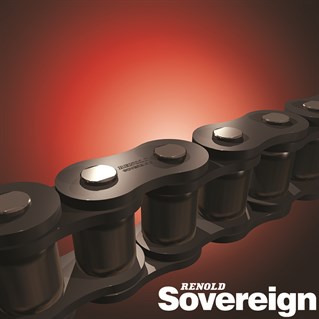Three causes of chain failure and how to overcome them
Many harsh industrial manufacturing processes, such as brick and cement manufacturing, as well as various agriculture and construction machines, rely on transmission chains to keep operations moving. Unfortunately, the unforgiving operating environment, with heavy loads, abrasion, dust, and debris, increases the stress the chain operates under, leading to a higher risk of failure. Should the chain fail, production quite literally grinds to a halt. Depending on the application, replacing the chain can take anything from a couple of hours to several days.
The good news is that chain failure is easy to avoid. Here we look at how you can prevent three of the commonest causes of chain failure.
1. Avoid low specification materials
If the chain wears out quickly, it is often due to the quality of the steel used in its manufacture. If the steel is inconsistent, it might not be possible to heat-treat it correctly to achieve the required level of wear resistance. However, as most of these issues are not visible on the surface, it can be hard to determine the quality before it is too late.
Solution: Price can be a good indication of the quality of the chain: a chain with a suspiciously low price is likely to be made of inferior materials. When you specify a chain, pay careful attention to the manufacturer and their reputation. How long have they been manufacturing chains? How do they ensure the integrity of their materials? And what do their customers say about them? Reputable manufacturers use precision manufacturing techniques and materials that meet strict quality standards, free of imperfections and impurities. This helps optimise reliability and contributes to lower costs through longer service life.
2. Consider maintenance requirements
Dust, debris, and other particles present increase the risk of abrasive material damaging the chain. To withstand this additional pressure, the chain will require regular maintenance and replacements, but the location and operating conditions can make it a time-consuming and costly process. However, without maintenance, the chain is left at the mercy of the environment, and likely to fail quickly.
Solution: Reduce the risk of unplanned downtime by selecting a chain that is designed to withstand harsh environments and optimised for irregular and restricted maintenance. The leading manufacturers increase the lifespan of their chains by using special coatings to reduce the effect any abrasive residue has on its components. A well-planned design can also limit the amount of debris entering the chain and minimise damage.
3. Prepare for heavy loads
Many harsh industrial applications require the chain to withstand heavy loads, which increases the wear of its integral components, particularly the pins. Extreme load conditions create high bearing pressures, which can make them wear out quickly. As the diametrical clearances between the pin and bushing increase, it becomes easier for abrasive material to enter the joint area. Furthermore, as the pin and bush outside diameters reduce, the surface hardness and depth is also reduced, which makes them less wear-resistant, adding to the damage. This shortens wear life and increases the risk of failure.
Solution: To avoid costly replacements and downtime, check that the chain you select can withstand heavy loads, or has been specially developed for such applications. This means that the manufacturer has designed the chain so that all of the components, including pins, are up to the challenge and applied any additional surface treatment where necessary. Case studies from existing customers with similar applications can give useful guidance on the manufacturer’s expertise and the challenges they have helped resolve.
As these examples demonstrate, the easiest way to avoid downtime resulting from chain failure is to select a quality chain from the start. Renold Sovereign abrasion-resistant chain has been developed explicitly for use in harsh environments. It can withstand dust, dirt and debris, heavy loads and has superior wear life even with irregular maintenance and poor lubrication. From surface treatment if the pin to the overall chain design, every part of the chain is optimised to offer the best resistance and reliability for the most demanding applications. That is why Renold Sovereign chain provides up to ten times longer wear life in a dirty environment compared to standard chains.
Find out more about chains for harsh environment applications here